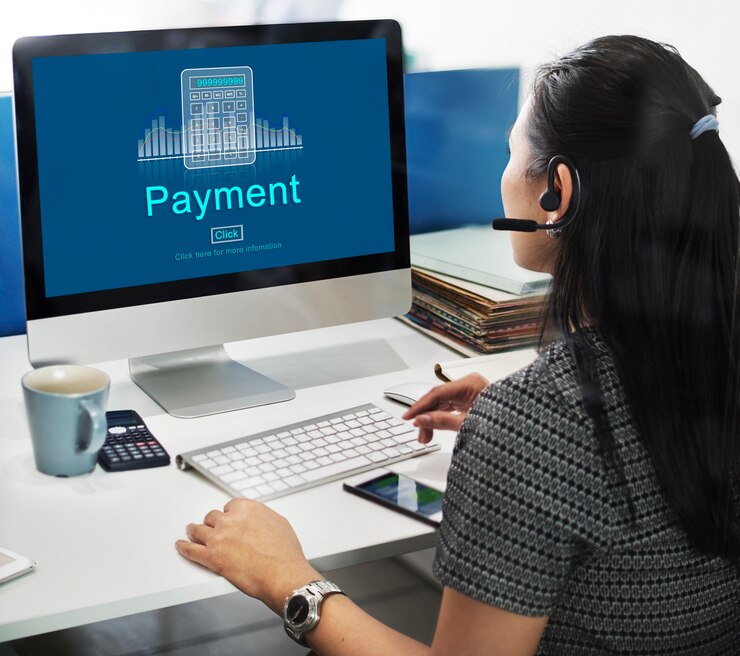Choosing The Right Payment Gateway For Your Business: Factors To Consider

In the age of digital transactions, selecting a suitable payment gateway is paramount for any business operating online. This critical choice can affect daily operations, influence customer satisfaction, and impact profit margins.
With various options available, each providing different features and benefits, the decision can seem overwhelming. However, by considering a few key factors, business owners can make an informed choice that aligns with their specific requirements. This article delves into the essentials of selecting the best payment gateway for your commercial ventures.
What Are The Core Advantages Of Payment Gateway Systems?
Some of the key advantages of payment gateway systems are some of the most important components of today’s business. With the help of the right payment gateway system in place, a business organization can get a flexible, secure, and effective platform for online transactions.
The particular system provides many benefits, which include increased efficiency in operation, ease of customer experience, strong security measures, and, of course, the opportunity to scale business operations to a greater expanse. However, we have included some of the core advantages of a payment gateway system.
Improved Security
With the help of the right payment gateway system in place, an organization can ensure improved payment security. The system is quite advanced and, thus, comes with high encryption technology. Ultimately, it helps protect transactions.
This system further ensures that stakeholders are safeguarded against fraudulent activities and data breaches. In addition to it, the gateway of payment screens the transactions for serious activity.
Global Processing
Businesses trying to expand their territory globally can use this payment system best. Multiple payment systems support different currencies. This particular capability allows businesses to accept payments in the local currency. It helps significantly in achieving the aim.
Fast Processing
With the help of the automated payment gateway, transactions have become faster than with manual processing. The speed of transactions provides a better experience and helps customers accelerate in the payment circles. All these go on to strengthen business and improve the flow of caste.
Comprehensive System Of Payment And Support
One of the great benefits that a high-quality payment gateway system can offer is the comprehensive approach. Instead of segregation, businesses can process the payment system with ease, using distinct payment gateways and compounds of processing.
A high-end payment platform offers a dynamic payment processing solution that can be engineered together- both the front end and the back end. Ultimately, it helps bring down the cost of startups—moreover, the time spent on the implementation and maintenance results in seamless services.
Evaluating Payment Security And Compliance Standards
Security is a non-negotiable aspect when it comes to payment gateways. Customers trust businesses with their sensitive payment information, so ensuring this data is protected against breaches is crucial.
Look for a gateway that adheres to the Payment Card Industry Data Security Standard (PCI DSS). Compliance with these standards demonstrates a gateway’s commitment to safeguarding customer information.
Encryption is at the heart of secure transactions, so payment gateways should utilize strong encryption protocols to protect data as it travels across the network. Additionally, consider gateways that offer secure tokenization, which replaces sensitive data with unique identification symbols, keeping the actual data off your servers and reducing risk exposure.
Another security measure to consider is fraud detection capabilities. The ideal payment gateway should include tools that identify and thwart fraudulent activities before they impact your business. Look for features like address verification services (AVS), card verification value (CVV) checks, and sophisticated risk management filters.
Comparing Transaction Fees And Payment Processing Costs
Payment gateways come with a range of costs that can significantly impact your bottom line. As such, you should scrutinize the fee structure of any potential gateway provider. These can include transaction fees, monthly fees, setup fees, and even fees for customer service.
Some providers offer a more straightforward pricing structure than others, so it’s critical to understand what you’re paying for.
When evaluating transaction fees, consider how the proposed fee structure fits with your average transaction size and volume.
A flat transaction fee may be more beneficial for businesses with lower volumes, while a percentage-based fee could be more cost-effective for those with higher volumes. Don’t forget to check for hidden fees that might inflate costs unexpectedly.
It’s worth considering whether a payment gateway offers tiered pricing based on transaction volume. As your business grows and processes more payments, you could benefit from reduced per-transaction fees.
This can be an attractive option for expanding businesses expecting to see an increase in sales volume over time.
Considering Customer Experience And Payment Flexibility Options
Ultimately, the customer’s checkout experience can make or break a sale. A complex or lengthy payment process can lead to cart abandonment and lost revenue. Therefore, selecting a payment gateway that provides a simple, streamlined checkout experience is paramount. A clean user interface and the ability to save card details for future purchases can enhance the customer experience tremendously.
Flexibility in payment is another aspect that can influence customer satisfaction and loyalty. Offering multiple payment options, such as credit cards, digital wallets, and even cryptocurrencies, means catering to a wider audience’s preferences. A gateway that keeps pace with emerging payment technologies demonstrates forward thinking and adaptability, key traits in the ever-evolving world of e-commerce.
In addition to payment options, consider the payment gateway’s capability to handle various currencies and languages, especially if your business serves an international market. Localizing the payment process reduces friction for non-native customers and can boost global sales substantially. It exemplifies a business’s commitment to providing an inclusive and accessible customer experience.
Conclusion
Overall, the decision to select the right payment gateway involves a balance of security, cost, and customer experience. By carefully evaluating each element, businesses can choose a solution that meets their current needs and supports future growth. With the right payment gateway, you can provide secure, seamless transactions that reinforce customer trust and enhance the reputation of your business.
Additional Reading:





























